CINCINNATI — August marked two major milestones for Margaret Long.
On the 13th, she celebrated her 50th birthday. She and her family were brimming with pride about the life she’s lived so far, but two days earlier, a much darker anniversary served as a reminder of just how lucky she is to be alive.
On Aug. 11, 1991, Margaret was shot.
What You Need To Know
- Margaret Long is a survivor of gun violence
- She and her shooter worked together to advocate for peace
- Long believes her forgiveness prevented further violence through retaliation
- Her message for others is to avoid revenge
The bullet hit her neck, paralyzing Long from the chest down.
“It went in and then some kind of way it went through and then it came out my lower shoulder blade,” she said.
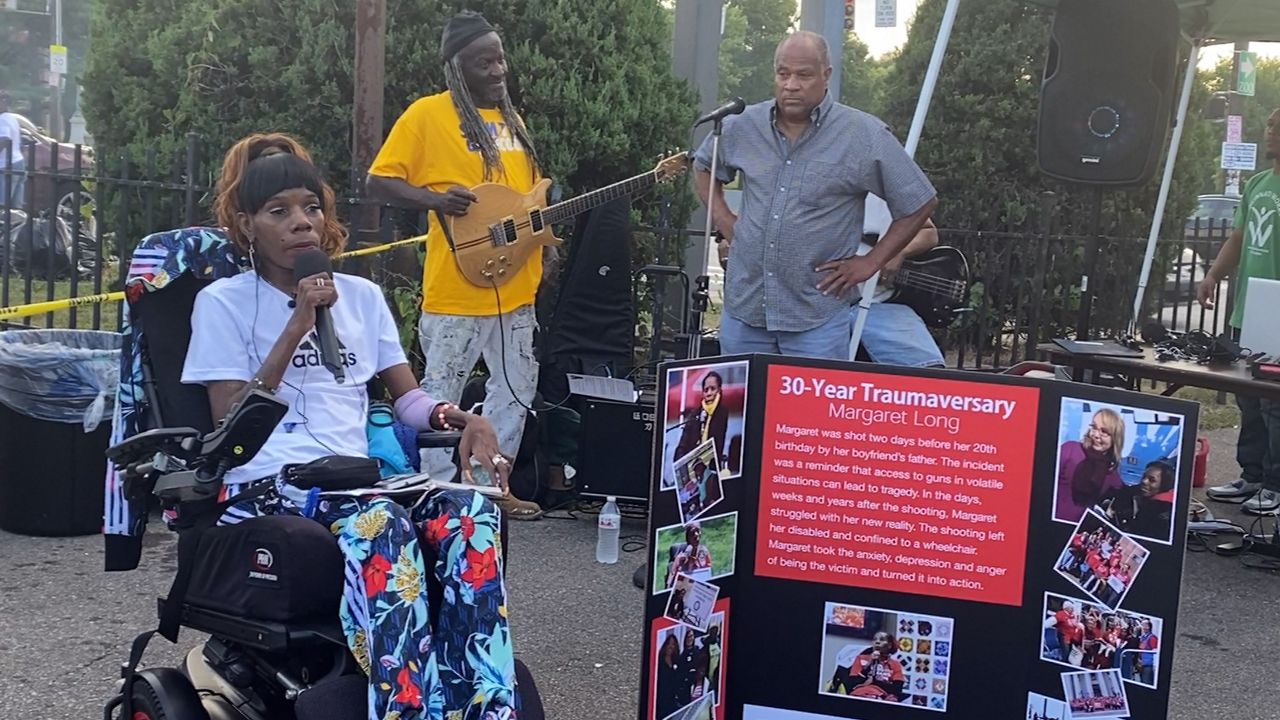
Margaret Long speaks at an anti-violence rally
Long said it took years of physical therapy to attain and maintain the mobility she has. However, she said she still struggles with her left side, the side closest to where the bullet entered.
“All right here, I can’t feel,” she said gesturing down her left arm.
Long isn’t shy about the struggles she faces with her body.
Her feeding tube isn’t a secret and neither is the pneumonia she develops once a year, sending her to the hospital as recently as July.
“I want people to know,” she said. “I tell them.”
Despite everything she’s faced over the past 30 years, Long said the most important thing to remember is that she’s alive and so is her family.
“I know it was really about me not retaliating,” she said.
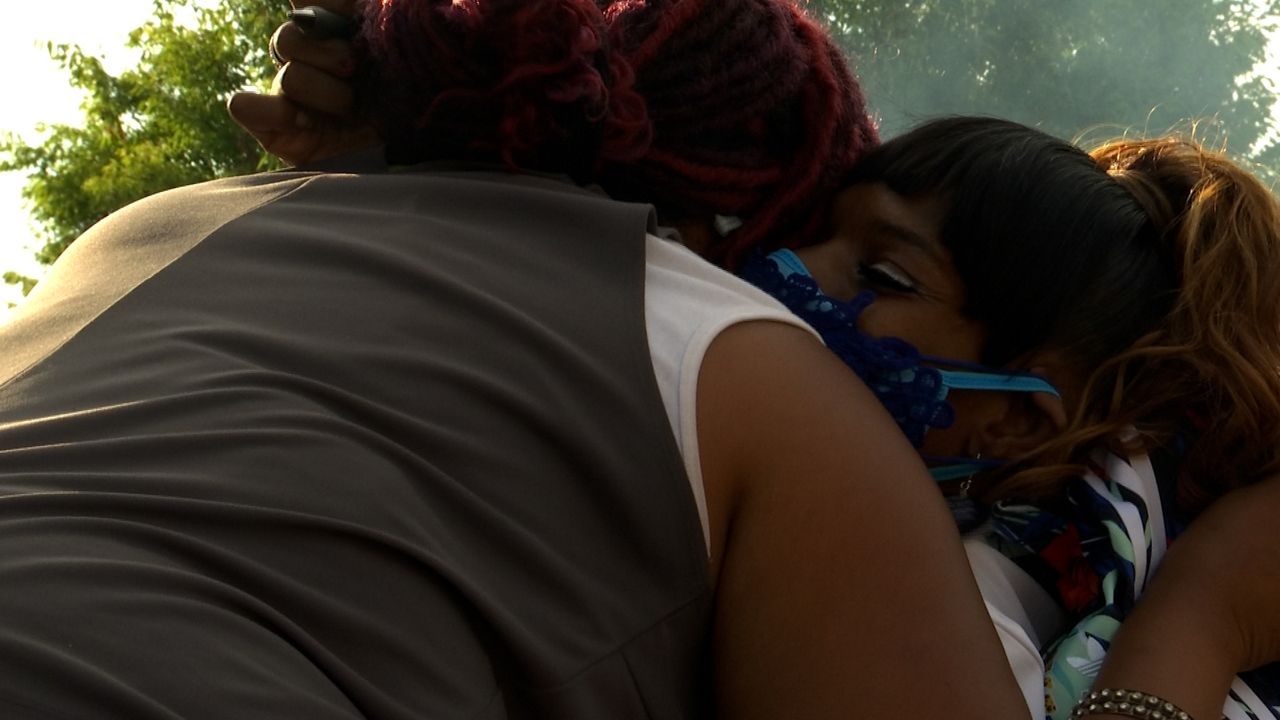
Long greets a friend who came to watch her speak
The night of the shooting
If she could do everything over again, Long said she would have listened to her mother.
“She told me not to move to that neighborhood,” she said.
Shortly before her 20th birthday, Long moved to Cincinnati’s West End neighborhood. She said her life started heading down the wrong path.
She was drinking, her on-and-off boyfriend was selling drugs and she was getting into fights.
“We fought with our hands,” she said. “Punching and scratching.”
On Aug. 11, she said she was at her sister’s house celebrating her birthday. Before the night ended, Long said she was drunk and decided to head home.
She said her sister tried to stop her but once again she didn’t listen.
There are no police reports of the incident, but Long and other witnesses have been telling the story for decades.
Near her apartment, Long said she ran into her ex-boyfriend and they got into an argument.
“He had a gun,” she said. “I had a little petty knife.”
Long said he did the right thing, he put his gun down so it wouldn’t go off accidentally. She believes he wasn’t trying to hurt her, but as the pair fought, they soon learned they weren’t alone.
Someone watching the argument picked up the gun and fired.
“Not even five feet, four feet from me,” Long said. “Shot me in my neck.”
The pair later learned it was her ex-boyfriend’s father, Arthur Phelps.
Phelps was never formally charged.
For years he’s maintained he shot Margaret to protect his son.
Choosing forgiveness
When she woke up at the hospital, Long said she couldn’t speak and could barely move.
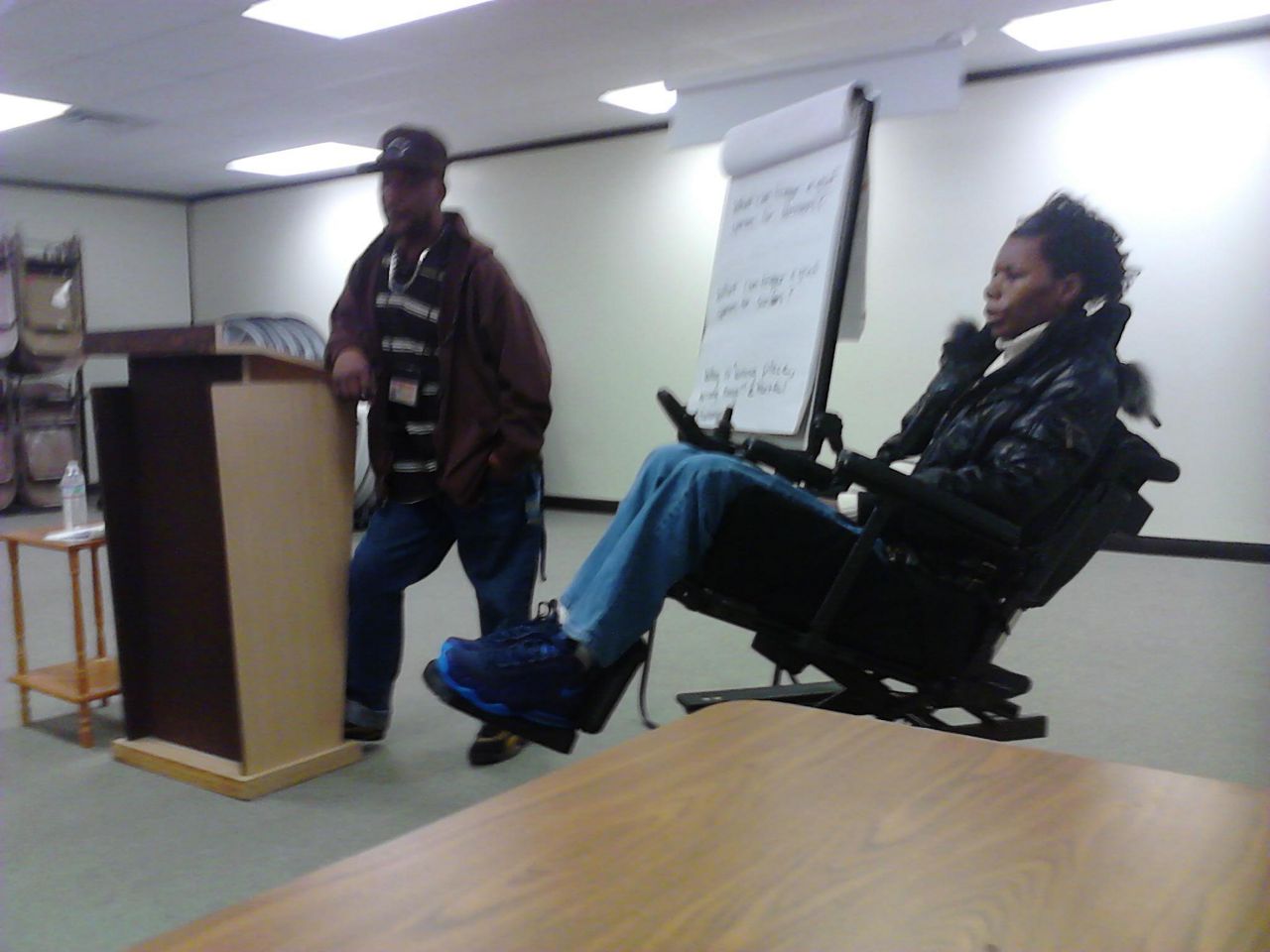
Long and Phelps speak to a class together
“They told my mom 50-50,” she said. “They said if she comes through she’s going to be a vegetable or she’s not going to do nothing.”
She said she doesn’t remember much, but she remembers her family was angry and so was her ex-boyfriend.
Some wanted revenge.
“When they asked me, ‘Do you want to kill the person that did this to you?’ They wanted to,” Long said. “They told me to blink once, blink twice, that was all I could do.”
Long thought about it for a while. She thought about her pain, her family’s pain and her ex-boyfriend’s pain.
“I blinked to my family don’t kill this man. Don’t kill him,” she said.
They listened.
For the next several years, Long focused on herself and her recovery.
She learned to adapt to life in a wheelchair, trying things like skydiving and pageants.
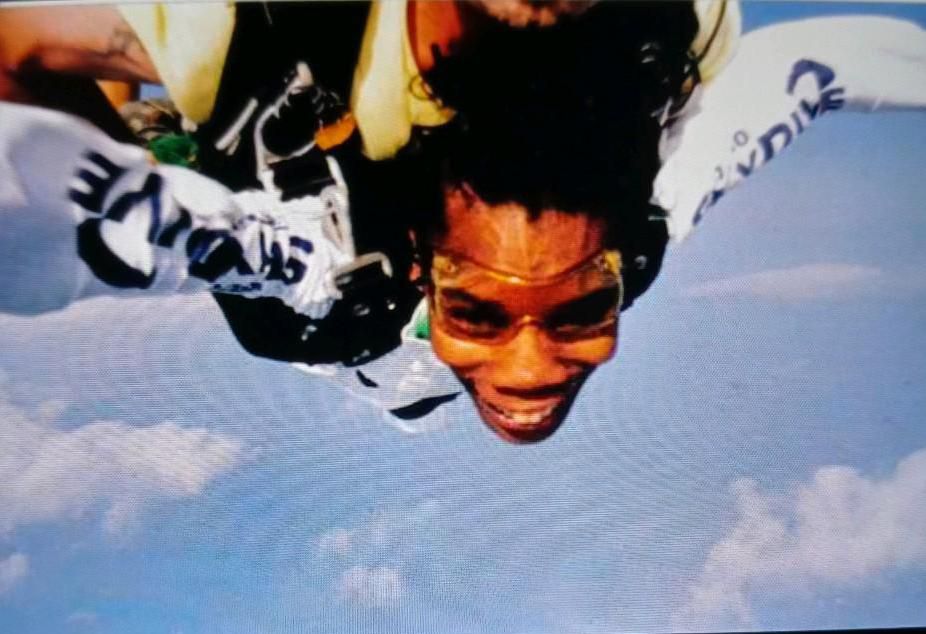
Long went skydiving years after her shooting
Then one day she turned on the news and saw Phelps on TV talking about preventing gun violence in Cincinnati. That’s when Long got angry.
“I thought, do they know what he did to me?” she said.
Long decided to find Phelps and confront him about what happened to her, not for revenge but for answers.
At a Community Initiative to Reduce Violence event, Long got her wish.
She spoke to Phelps face to face. He admitted he shot her and apologized.
Long forgave him.
A life of activism
From there, the two began working together.
They started speaking at schools, sharing both sides of their story and encouraging students to seek forgiveness rather than retaliation and stopping the cycle of violence.
“You’re losing one to jail or you’re losing someone to gun violence," Long said. “Or you have someone that’s left that’s in my situation.”
Long said they never became friends.
There was still a lot of hurt between their families, but they understood each other, she said.
“We done sat together,” she said. “We ate together. We went to a lot of things together.”
In recent years, Long said Phelps developed health concerns that prevent him from continuing their work, but she’s found room for activism through other groups.
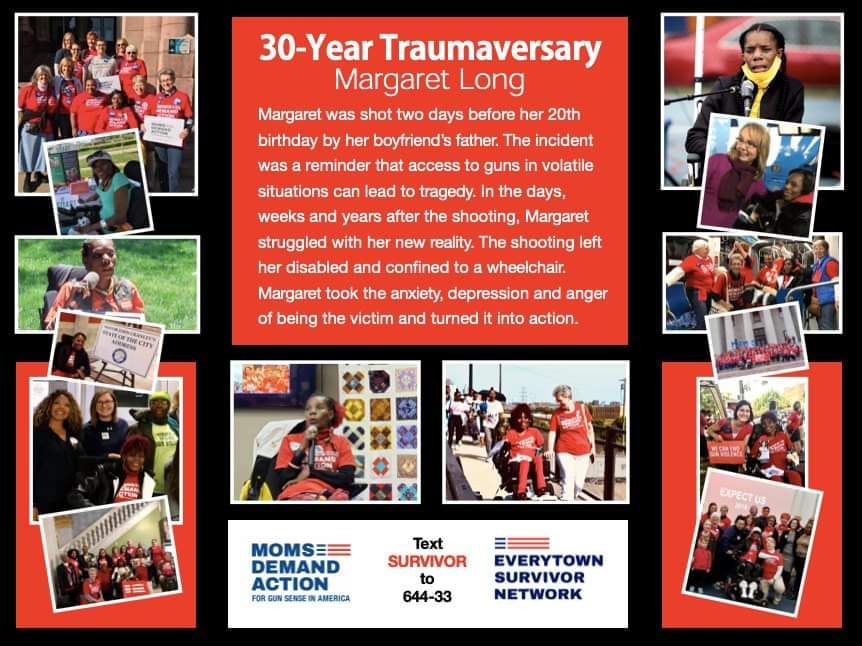
Moms Demand Action made Long a poster commemorating her activism
Her work earned her a Fifth Third Bank Profile in Courage in 2009 and Long became Ms. Wheelchair Ohio in 2011 with a platform against gun violence.
She joined Moms Demand Action and began working with their volunteers to fight for stricter gun laws in Ohio and nationwide.
She traveled with them to Washington, D.C. to meet with parents who lost children to gun violence and other survivors.
Through it all, Long believes making local appearances and telling her story to Cincinnati’s youth is still one of the most important things she can do, especially with gun violence spiking over the past two years.
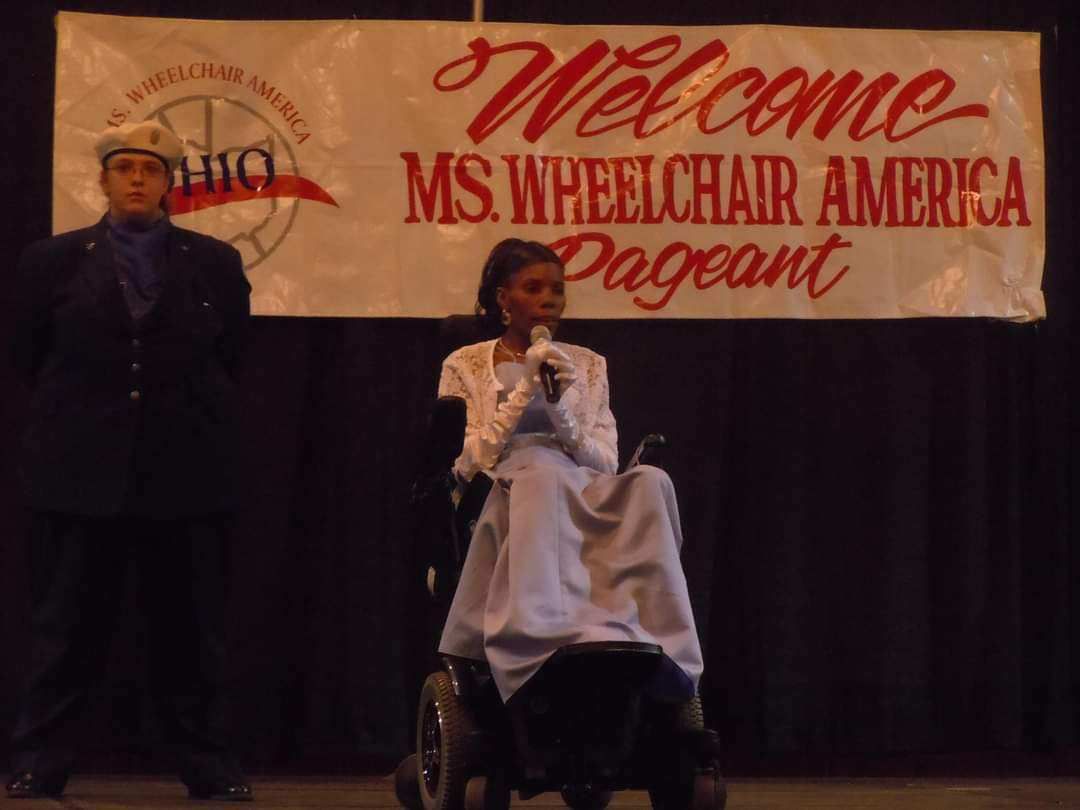
Long was crowned Ms. Wheelchair Ohio in 2011
“Seeing other people get shot and watching the news,” she said. “That’s what made me more upset about my situation.”
Long said it’s difficult to remain optimistic at times. It can feel like nothing has changed over the past 30 years.
“All we can do is try,” she said. “But my goal is to reach younger children and just get my story out of 30 years surviving and let everybody know how I didn’t retaliate.”
As for what happened to her, Long said she’s at peace.
She plans to write a book detailing her life story as a survivor and an activist as well as her relationship with Phelps.
Long believes it will always be a sore subject for her family and his; but the further she distances herself from that fateful night, the more she understands, forgiveness was the right decision.
“It wasn’t hard for me to do at all because you know why?” She said.
“I’m still here 30 years later.”








